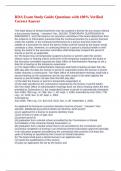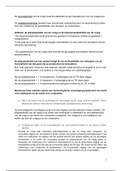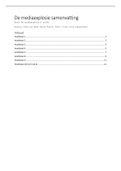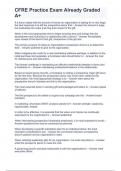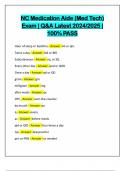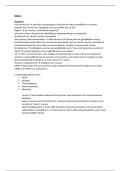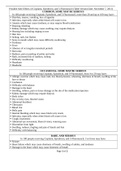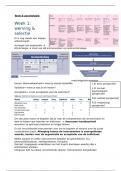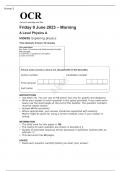Exam (elaborations)
RDA Exam Study Guide Questions with 100% Verified Correct Answers
- Course
- Institution
RDA Exam Study Guide Questions with 100% Verified Correct Answers How many members are on the board - Correct Answer 11 members - 6 dentist -3 hygiendt -2 members of the public The laws and the interpretation of them that applies to and affects the dental profession are referred to as - Correct Ans...
[Show more]
